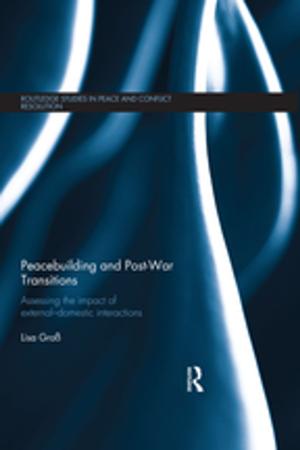Thoughts on Achieving a Lasting and Honorable Peace in the Middle East
Nonfiction, Social & Cultural Studies, Political Science| Author: | Jozef Bicerano | ISBN: | 9781301525423 |
| Publisher: | Jozef Bicerano | Publication: | August 22, 2013 |
| Imprint: | Smashwords Edition | Language: | English |
| Author: | Jozef Bicerano |
| ISBN: | 9781301525423 |
| Publisher: | Jozef Bicerano |
| Publication: | August 22, 2013 |
| Imprint: | Smashwords Edition |
| Language: | English |
The Israeli-Palestinian conflict has been raging for a century. Its antagonists are two Semitic peoples, Jews and Arabs, each among the ancient inhabitants of the Middle East tracing their roots to the Biblical prophet Abraham. If Israel and the Palestinians could end their conflict, both peoples would be able to improve their economic and political ties with other nations, significantly relaxing tensions both in the Middle East and in the whole world.
All three coauthors have deep connections to the Middle East. The perspectives of the two senior coauthors were initially determined by their different ethnic and religious backgrounds and were diametrically opposed to each other. They gradually evolved to a consensus view over decades.
The authors express hope that the Israeli-Palestinian conflict may be overcome if there is enough will on both sides. They are very respectful and sympathetic to ordinary people, both Jewish and Arab. They present their thoughts on what a lasting and honorable peaceful end to the Israeli-Palestinian conflict may look like. They propose specific ideas on how such a positive outcome can be attained soon if the parties to the conflict are able to adopt a mindset of cooperation. Finally, they present a long-term vision of the potential benefits of such an outcome to the peoples of the Middle East.
In summary, peaceful coexistence must be based upon the following premises:
(1) Israel and Palestine must coexist as two separate states. Their legitimacy must be recognized by all Arab states as the outcome of a directly negotiated peace process.
(2) Acts of terrorism against Israel must come to an end with the help of Islamic scholars persistently teaching that terrorism against civilian targets is incompatible with Islam.
(3) A settlement must be agreed upon regarding the status of Jerusalem. In such a settlement, the Jewish and Arab sections of the city could serve as the capitals of Israel and Palestine, respectively, while the “Old City” holy to all three Abrahamic religions becomes a semi-autonomous region under the oversight of the United Nations.
(4) Everyone must have the opportunity to live without being under constant threat of physical violence and/or dehumanizing treatment.
(5) Everyone must have the opportunity to enjoy basic human rights and civil liberties.
(6) All parties must cooperate to preserve and strengthen peace. Such cooperation must encompass the implementation of an action plan to fight entrenched and pervasive mutual prejudices.
(7) All parties must collaborate in sharing the resources of the region to raise the standard of living of all of its peoples and especially of Palestinians living in the West Bank and Gaza Strip.
The authors anticipate that, over time, a lasting and honorable peace will lead to a Middle Eastern Renaissance as well as to the inception and gradual growth of a regional supranational alliance similar to the European Union.
The Israeli-Palestinian conflict has been raging for a century. Its antagonists are two Semitic peoples, Jews and Arabs, each among the ancient inhabitants of the Middle East tracing their roots to the Biblical prophet Abraham. If Israel and the Palestinians could end their conflict, both peoples would be able to improve their economic and political ties with other nations, significantly relaxing tensions both in the Middle East and in the whole world.
All three coauthors have deep connections to the Middle East. The perspectives of the two senior coauthors were initially determined by their different ethnic and religious backgrounds and were diametrically opposed to each other. They gradually evolved to a consensus view over decades.
The authors express hope that the Israeli-Palestinian conflict may be overcome if there is enough will on both sides. They are very respectful and sympathetic to ordinary people, both Jewish and Arab. They present their thoughts on what a lasting and honorable peaceful end to the Israeli-Palestinian conflict may look like. They propose specific ideas on how such a positive outcome can be attained soon if the parties to the conflict are able to adopt a mindset of cooperation. Finally, they present a long-term vision of the potential benefits of such an outcome to the peoples of the Middle East.
In summary, peaceful coexistence must be based upon the following premises:
(1) Israel and Palestine must coexist as two separate states. Their legitimacy must be recognized by all Arab states as the outcome of a directly negotiated peace process.
(2) Acts of terrorism against Israel must come to an end with the help of Islamic scholars persistently teaching that terrorism against civilian targets is incompatible with Islam.
(3) A settlement must be agreed upon regarding the status of Jerusalem. In such a settlement, the Jewish and Arab sections of the city could serve as the capitals of Israel and Palestine, respectively, while the “Old City” holy to all three Abrahamic religions becomes a semi-autonomous region under the oversight of the United Nations.
(4) Everyone must have the opportunity to live without being under constant threat of physical violence and/or dehumanizing treatment.
(5) Everyone must have the opportunity to enjoy basic human rights and civil liberties.
(6) All parties must cooperate to preserve and strengthen peace. Such cooperation must encompass the implementation of an action plan to fight entrenched and pervasive mutual prejudices.
(7) All parties must collaborate in sharing the resources of the region to raise the standard of living of all of its peoples and especially of Palestinians living in the West Bank and Gaza Strip.
The authors anticipate that, over time, a lasting and honorable peace will lead to a Middle Eastern Renaissance as well as to the inception and gradual growth of a regional supranational alliance similar to the European Union.















